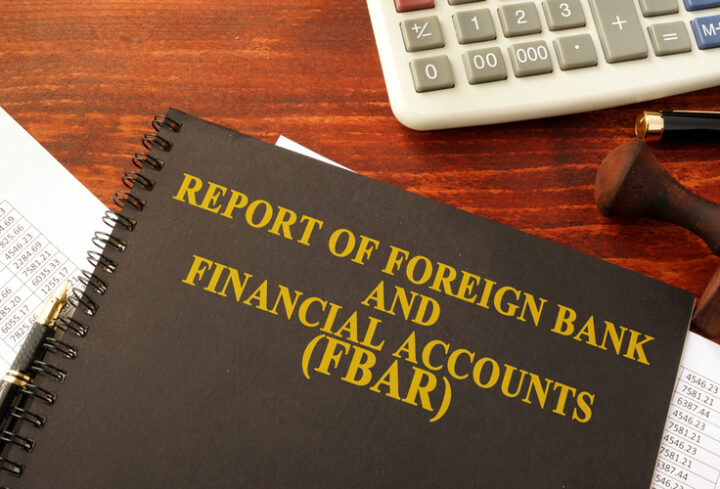
FBAR (Foreign Bank Accounts Report) must be filed for expats who have international bank accounts. If your taxpayer status is married filing jointly, you may wonder whether you and your spouse can file one FBAR for the couple or whether each person needs to file this form.
What is the FBAR limit for married filing jointly? Read on to learn more about FBAR requirements for married filing jointly, including financial thresholds.
When Is FBAR Required?
If you have more than $10,000 in foreign bank accounts, you must file FBAR. The IRS considers accounts to be not only checking or savings accounts, but also mutual funds, brokerage accounts and other securities.
The $10,000 threshold for FBAR reporting can happen year-round. If you end the year with less than $10,000 in your accounts, but had over $10,000 earlier in the year, you’ll still need to file.
FBAR Joint Filing Requirements
Married couples who are filing jointly wonder whether the FBAR threshold applies to them individually or as a couple. They also wonder whether the couple can file FBAR jointly for assets held jointly or individually.
Let’s break down FBAR joint filing requirements to understand when a joint filing is appropriate and when each party should file the form separately.
Many couples hold assets jointly, with both names on the bank account. Accounts that are held jointly can be reported on a joint FBAR form.
Accounts held by one party only cannot go on the same joint form. The assets are considered to belong to a single individual rather than the couple — even if the couple considers the money to be theirs, rather than his or hers. A joint FBAR for an account owned by one person, and not held jointly, could be considered inappropriate.
While this explanation seems straightforward, there are additional complexities to consider.
If the couple signed a prenuptial agreement, or other agreement that specified property ownership, then the terms of that agreement should dictate who is to be considered the account owner for reporting purposes.
Some states have community property laws that state that any asset acquired after the marriage is considered to be equally owned by both parties. If your home state has a law like this, you can use a joint FBAR for state taxes, since the state considers all accounts jointly owned.
Lastly, the citizenship of your spouse also impacts FBAR reporting. If your spouse is a U.S. citizen, resident or has a green card, the individual should report his or her accounts via FBAR. If your spouse doesn’t fall into these categories, then his or her income should not be reported on FBAR. If your spouse is a citizen of another nation, you would file the FBAR form under your name only, even in cases of FBAR joint account.
Let Expat CPA Help
Keeping up with tax obligations as an expat can be confusing, especially when the law has several exceptions or special cases, as with FBAR.
Never stress about tax paperwork again when you get personalized tax assistance from our team at Expat CPA. We offer comprehensive tax services for expats — including FBAR, FATCA reporting, federal income tax and state income tax. Not only will our team file the appropriate paperwork for you, we can help with complicated issues such as back due taxes or self-employment income. We’ll walk you through the fine points of your tax credits and returns to help you understand your tax obligations and reduce stress.
Learn more about our tax services for expats, or schedule an appointment today.
